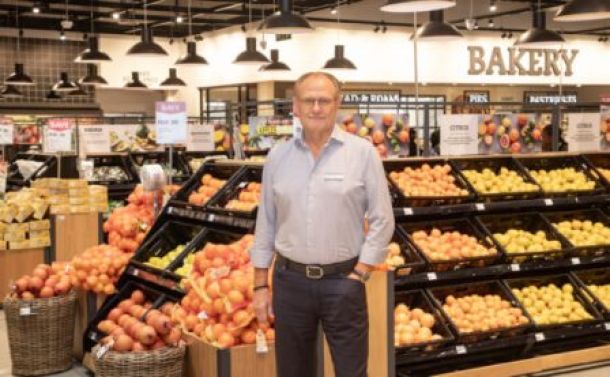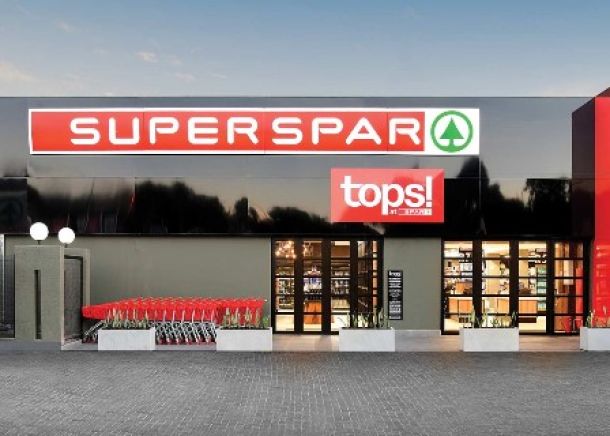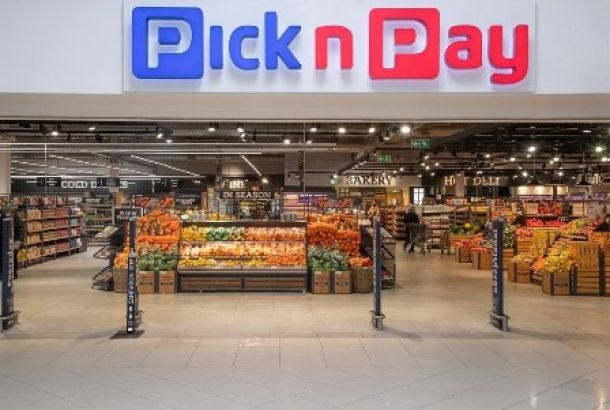Shoprite defies market conditions in challenging half-year
The Shoprite Group defied market conditions by growing turnover by 8.8% in the six months to December 2015 after an improved second quarter sales growth of 10.6% from 6.7% in the first quarter. Trading profit was lifted by 10.4% to R3.3 billion. It did so in an environment where internal food inflation more than halved to 2.2% when compared to the corresponding period in 2014 when it averaged 5.2%.
Turnover grew to R62.5 billion boosted by strong festive season sales. The Group increased its trading margin to 5.3% from 5.2%, substantially higher than most of its competitors, despite intense competition, also from a growing informal sector.
Shoprite CEO Whitey Basson said sustainable growth remained central to the Group’s strategy. In the six months to December it opened a net 74 corporate stores while also increasing the capacity of its network of distribution centres which is being expanded on an ongoing basis.
Work started in January on the construction of an 85 000m² regional distribution node outside Cape Town that will further enhance service to stores, he said.
“The store growth has enabled us to create a further 512 new jobs every month during the last 12 months. The Group now employs a total of 136 076 people of whom 19 857 work outside South Africa, making it one of the largest employers in South Africa,” Basson said.
Basson said the Group is proud of its educational assistance and bursary program of R20 million as this has resulted in the Group today employing 3 428 people with post-matric qualifications with full succession planning for every senior executive.
An improved sales growth trend from the first quarter lifted sales growth to 7.2% for the Group’s RSA supermarket operations in an environment in which the effects of a weak currency and the devastating drought were increasingly being felt.
Some 72% of South Africa’s total adult population today shops at the Group’s stores – up 5 percentage points since 2012 and almost double that of its nearest competitor at 38.4%. To respond to the lack of disposable income of its traditional customer base, the Shoprite brand continued subsidising basic food stuffs to assist customers. Black Friday and other tactical promotional activities lifted sales without impacting overall gross margin.
Although economic growth in Africa has slowed, as in most emerging economies, consumer spending has not been affected to the same extent as in South Africa. Sales in the 14 countries outside South Africa where Shoprite is opening its 200th supermarket this month, increased by 15.2% and by 23.5% in constant currencies.
“The economies of the oil-rich Angola and Nigeria in particular showed surprising resilience despite the challenges brought about by the steep drop in the oil price,” Basson said. Despite import restrictions and forex shortages, four new supermarkets were opened in Nigeria with four more planned for the second half of the year. The large supermarket in Palanca near Luanda, which burnt down more than a year ago, will reopen its doors in April this year.
Despite the economic challenges brought on by the low oil price, the IMF still forecast Nigeria and Angola to grow their economies by 4.1% and 3.5% respectively in 2016. Healthy population growth is also driving consumption in most of the Non-RSA countries.
Basson said supermarket sales continued to be buoyed by ancillary services such as Money Market, the in-store MediRite pharmacy chain and LiquorShops. The latter in particular is developing into a substantial business in its own right and is now the largest corporate owned liquor chain in South Africa. Operating from 318 outlets at the end of December – up from six stores ten years ago - it grew sales in the six months by 31.7%, at a pace almost double that of the rest of the alcoholic beverage market.
Assisted by the large number of outlets opened in the previous financial year, the Group’s furniture division raised turnover by 13.7%. Credit sales continued to decrease, a process accelerated by the introduction in September last year of the first set of amendments to the National Credit Act. The division’s various brands now operate from 488 outlets of which 61 are outside South Africa.
Looking ahead Basson said although the second half of the financial year would offer challenging trading conditions, the greater geographic diversification of the Group’s operations, the spread of its various brands across consumer income segments and its continued investment in infrastructure placed it in a substantially better position than some of its main competitors. “We expect to deliver reasonable results in the second half provided the current economic climate does not deteriorate further.”
Shoprite Holdings has declared an interim dividend of 156 cents (2015: 143 cents) per ordinary share for the period under review.
News Category
- International retailers
- On the move
- Awards and achievements
- Legislation
- Wine and liquor
- Africa
- Going green
- Supplier news
- Research tools
- Retailer trading results
- Supply chain
- Innovation and technology
- Economic factors
- Crime and security
- Store Openings
- Marketing and Promotions
- Social Responsibility
- Brand Press Office
Related Articles

Pick n Pay plunges 16% on JSE as stock adjusts ...

SPAR suffering from a hangover

Pain for Pick n Pay

Pick n Pay disaster


